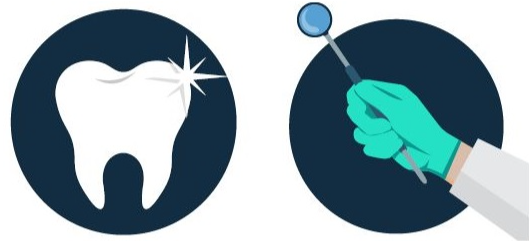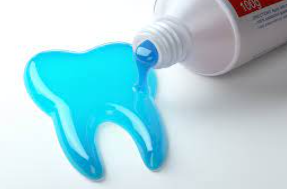The Science Behind Brushing Your Teeth
- Holden Jarstfer
- Nov 7, 2022
- 3 min read
Hopefully, at some point in your life, you’ve been urged to take care of your dental hygiene, by brushing your teeth. But what exactly does brushing your teeth do? What about flossing? And how about mouthwash? All the science behind these hygienic habits will be explained in this article.

Why should you brush your teeth in the first place? Brushing your teeth removes food bits and plaque from your teeth. This plaque, a white film that forms on your teeth, contains bacteria that produce acid capable of breaking down your enamel, or the outermost layer of your teeth. When the enamel is harmed continuously it increases the chances of developing permanently damaged areas on your teeth or cavities. Once a cavity furthers its development and goes deeper into your tooth, it can cause a lot of pain. When your teeth are damaged this badly, it also makes them more sensitive, and as a result, you may find it harder to eat or drink.
But how does brushing your teeth work? We know that brushing your teeth removes plaque, but why is this? It is all thanks to an ion of fluorine called fluoride. Fluoride assists in removing plaque and remineralizing the surface of your teeth. It can also stop bacteria in your mouth from producing damaging acids. This is why it is often that at dental check-ups, your dentist may apply what is known as fluoride varnish to your teeth. This is just an effective way to protect your teeth from decay. Fluoride is found in toothpaste, mouthwashes, and even in some areas’ water. Another ingredient found in some toothpaste is baking soda. While you brush your teeth, baking soda aids in the removal of plaque. It is also known to help whiten your smile.

Other ways you can maintain, or improve your dental hygiene is by flossing, drinking water after meals and before brushing your teeth, using mouthwash, and oddly, eating an apple after meals. The purpose of flossing is pretty obvious. When you floss, you help remove larger bits of food from between your teeth that a toothbrush may not be able to dislodge. If left undisturbed, these food bits will host bacteria and lead to tooth decay. Drinking water is a good habit to obtain in general. Drinking water helps clear out food bits stuck to or between your teeth, and it helps make brushing more effective if done before you brush. Some water also has fluoride in it which helps remineralize your teeth and remove plaque. Mouthwash has the same benefits as drinking water, except since its whole purpose is to help clean your teeth, it has more fluoride and other minerals in it. Lastly, often eating an apple after a meal can help clean your teeth and keep your gums healthy. Now that you know the science behind dental hygiene, apply it!
About The Author
Holden Jarstfer enrolled in Northwood High School in the fall of 2022. He has a heavy interest in math and science.
Sources
Team. “The Importance of Fluoride for Your Teeth.” South Boston Family Dental, 12 Feb. 2019, https://www.southbostonfamilydental.com/the-importance-of-fluoride-for-your-teeth/.
“About Fluoride.” Centers for Disease Control and Prevention, Centers for Disease Control and Prevention, 8 Mar. 2019, https://www.cdc.gov/fluoridation/faqs/about-fluoride.html#:~:text=Fluoride%20is%20a%20mineral%20that,health%20measure%20for%20reducing%20cavities.
“How Can Chemistry Help You Take Care of Your Teeth?” Let's Talk Science, 26 Sept. 2019, https://letstalkscience.ca/educational-resources/stem-in-context/how-can-chemistry-help-you-take-care-your-teeth.
“Oral Health Tips.” Centers for Disease Control and Prevention, Centers for Disease Control and Prevention, 9 Nov. 2021, https://www.cdc.gov/oralhealth/basics/adult-oral-health/tips.html.
“Brushing Your Teeth: Does Timing Matter?” Mayo Clinic, Mayo Foundation for Medical Education and Research, 7 Oct. 2021, https://www.mayoclinic.org/healthy-lifestyle/adult-health/expert-answers/brushing-your-teeth/faq-20058193#:~:text=When%20you%20brush%20your%20teeth,acids%20that%20attack%20tooth%20enamel.




Comments